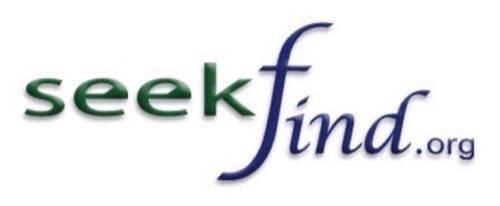From the beginnings of the Web, people have divided it according to their own concerns: political leanings, national interest, gender concerns. And religion. It seems inevitable, as the online world increased exponentially, that search would take such a place of importance, and equally inevitable that people would create search engines that accorded to their worldviews, including that of religion. Now there are search engines for each of the “people of the book,” Christian, Jewish and Muslim.

Although it is just a skim through the possibilities, I thought I would test each of these engines. Would I find anything surprising in the results? Or would they do what so much of the Web does already, reaffirm the presuppositions with which each group of users already approaches the world? But most importantly, do they work as search engines?
My survey is not scientific. It was simple. I chose three main topics and gave them each three keywords. I searched on those keywords to test the engines. I chose topics that were not overtly religious.

Sex: homosexuality, breast-feeding, reproduction
Science: evolution, string theory, chemistry
Entertainment: Justin Bieber, comedy, Li Gong
I chose three search engines, which I discovered through an NPR report, I’m Halal (Islamic), SeekFind (Christian) and Jewogle (Jewish). I used Google as my control. I focused on the first page of results, since a majority of users don’t go beyond them for most searches.
SeekFind’s results for “homosexuality” start with generically titled results like “Christianity and Homosexuality” and “Biblical Homosexuality.” Below the fold, the results get less charitable-sounding. “Is homosexuality is a sin?” and “Is homosexuality an illness” get an implied answer with “Homosexuality is sinful.” Jewogle’s results are all Jewogle pages, with the top answer being an article about the poet Allen Ginsburg’s attraction to Gregory Corso. In the preview for I’m Halal’s second result is the statement, “There is consensus among both Muslims and the followers of other religions that lesbianism and homosexuality are evil and filthy practices.” Yikes.
A search on “breast-feeding” on SeekFind defaulted to a search for “truth” the first time, then on “sex” the second time, before it allowed the search to go through. Most of the results were about breast cancer. The only Jewogle result is an article on the Freudian idea of oral fixation. The only results that had to do clearly with breast-feeding were from I’m Halal.

A search on “string theory” produced anti-evolution screeds in the Christian search engines, a random article on racehorses for Jewogle and, well, results on string theory in I’m Halal. One using the name of the famous Chinese actress Li Gong produced a few movie sites on SeekFind, but the top result was a post in a Christian site on Falun Gong. Jewogle gave no results whatsoever and, again, I’m Halal pulled ahead by producing results germane to the topic. When I searched again, enclosing the name in quotation marks, the Christian site joined the Jewish with no results at all while the Muslim site didn’t change to speak of.
Evolution, as might be expected, did not produce any pro-evolutionary results. The oddest was the link to “Evolution Is Religion, Not Science.” Jewogle’s results are all person-related, people who were involved in evolutionary studies, not the science itself. I’m Halal returned science-focused results on evolution.

Conclusion
My intent in surveying these search engines was not to discover, in any way shape or form, who is “right.” It was not to judge the value of the theology and philosophy behind the sites. It was to review the search engines as search engines. In that respect, at least, it was an easy job.
SeekFind, the Christian search engine, employed strange search logic and excluded things that were not remotely “anti-Christian.” It returned aberrant results, such as “truth” for “breast-feeding,” and did not seem very robust in terms of sources. Jewgogle is focused almost exclusively on people. That’s fine as long as you’re not interested in, well, anything that isn’t a person, like “Saturn,” say. I’m Halal, the Islamic search engine, was the clear winner as a search engine. It operated quickly, its logic seemed robust and it had much more information indexed than the other two.
That’s my take. What’s yours? How do search engines serve your need to know? Do you use another religiously-focused search engine? Tell us about it in the comments.
Jesus image by Michael Spoula










